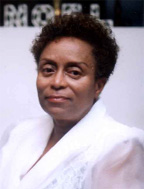The government last evening defeated an opposition motion calling for wider television access in Linden, but indicated its willingness to grant new broadcast licences and re-examine long-delayed legislation.
The motion by AFC MP Sheila Holder was defeated on a vote of 31 to 24 at yesterday’s Private Members Sitting, where PPP/C MP Gail Teixeira told the National Assembly that the government is willing to withdraw from a five-year-old agreement with the main opposition PNCR and exercise its right to grant new licences.

Holder’s motion sought to have the Assembly call on government and the National Frequency Management Unit (NFMU) to permit operators of private television channels the right to relay and beam their signals to Linden, Wismar and other Region 10 communities, without having to attain additional licences and pay additional fees. During the testy debate, government and opposition MPs clashed over whether the constitutional rights of the Lindeners are being infringed as a result of there being no other local television channels other than the state-run NCN.
Holder charged that Lindeners have a fundamental right to receive ideas and information without interference, as guaranteed under Article 146 (1) constitution. As a result, she accused the government of operating a monopoly on the airwaves in Linden, disallowing citizens from participating in the affairs of the town as well as the country. She suggested that the voting patterns of the community might have influenced the deliberate “discrimination” against Linden and similar arguments were put forward by AFC MPs Raphael Trotman and Khemraj Ramjattan. Trotman likened the situation to intellectual genocide. He noted that Region 2 has a smaller population than Linden but access to eight TV stations to Linden’s one. Ramjattan accused the government of partaking in the same behaviour it had lambasted the PNC administration for during its time in office, recalling a similar attitude to newsprint and radio in the 1970s. He said the government appeared to be exercising control over the TV access in the town by denying CNS 6 and Vieira Communications Television 28 their applications for relay towers to extend their signal to Linden, while granting extensions to the state TV. He charged the administration with attempting to control the people.
Teixeira said that the electro-magnetic spectrum used to facilitate broadcasts is not infinite, saying that it is important to ensure availability in the future. She also suggested that there is a misunderstanding about the agreement to freeze the grant of new licences until new broadcast legislation is in place. The agreement was part of a communiqué signed by President Bharrat Jagdeo and Opposition Leader Robert Corbin. She blamed the PNCR for holding up the process and called for it to be re-examined. She said while it is argued that extant licencees can simply apply to extend their coverage, to do so would require frequency changes and new licences. She said the present operators would need new frequencies assigned to them in order for them to access Linden. She said it is possible for broadcasters to improve the quality of their transmissions as NCN has done but not exceed frequency. She, however, noted that the state media has exclusive rights to frequency expansion.
But Teixeira also drew attention to the fact that Guyana has 20 TV stations and one radio station and with new technologies broadcasters are utilising the non-traditional broadcast spectrum. She noted that Cable TV and Satellite TV providers are already servicing Linden, an assertion echoed by Home Affairs Minister Clement Rohee. However, opposition MPs pointed out that Lindeners want more access to local stations with local content.
PNCR leader Corbin decried the situation and likened the attempts to resolve it to flogging a dead horse. He called for the executive to honour its word and draft a broadcast bill that reflects all the agreements of the bi-partisan commission set up to examine it. In the interim, he opined that legislation would not be needed to allow the extension to CNS 6 and VCT 28. He warned that the continuation of the current trend and the government’s refusal to act could see more radio stations springing up. “People would not allow their constitutional rights to be deprived because they have given the government enough time to act,” he said.
PNCR-1G Region 10 MP Vanessa Kissoon said Lindeners are fed up with the NCN programming, saying that they want to determine what they watch. She called the situation wholly unacceptable while raising concern over the censorship of content produced by Lindeners for broadcast on NCN. She noted that the Regional Democratic Council which was given an hour of airtime has to have its content vetted by NCN’s Georgetown office. “When we want to air our views, we have no opportunity,” she said, adding that US-based programme provider Muzik Media was also asked to provide its production for vetting after airing a segment that featured local news. She said another locally-produced programme, “What You Need to Know,” is also similarly vetted. “The residents of Linden feel restrained… allow us to have freedom of choice.”
Kissoon noted that since Holder’s motion was tabled a little over a month ago, NCN has produced a new programme, “Let’s Talk Linden.” “We don’t want that,” she declared. “We want six and twenty-eight and other stations.”
She also argued that the TV station in Linden is the rightful property of the town. She said it was handed over as a gift to the people by a corporate citizen and called for it to be returned. She submitted an amendment to the motion to this end.
Meanwhile, GAP-ROAR MP Everall Franklin noted debate might not be taking place if there were a recognition that NCN belonged to all of the people. “We are speaking of NCN as if it did not belong to all of the people,” he said. “Here we are begging for time on the nation’s station.” According to him, it is only a matter of time before the restrictions fail to have any impact in light of the evolution of media platforms. He warned against excluding access to Lindeners and noted that such an approach might not have mattered if the government had confidence in the quality of NCN’s programming, which he called substandard. He said he was heartened by Teixeira’s call and hoped that the issue would be speedily resolved so that real problems affecting the people can be addressed.





